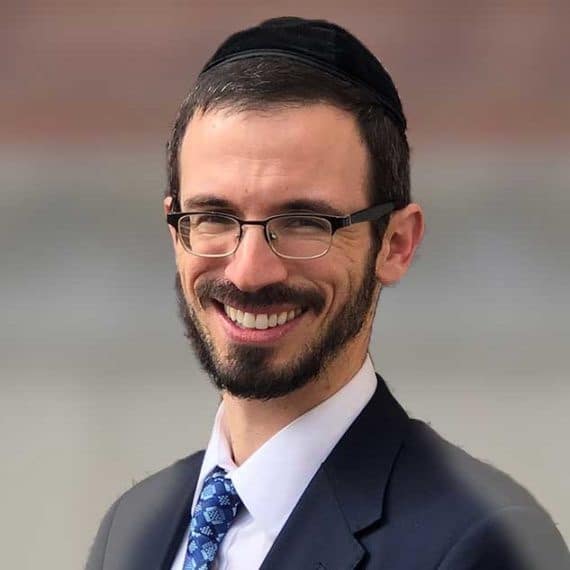-
24 June 2020

 A few weeks after local schools were shut down because of the coronavirus pandemic, Rabbi Shmuel Lichtenstein, Assistant Principal and Judaic teacher at Torah School of Greater Washington, decided to give his home office to one of his children.
A few weeks after local schools were shut down because of the coronavirus pandemic, Rabbi Shmuel Lichtenstein, Assistant Principal and Judaic teacher at Torah School of Greater Washington, decided to give his home office to one of his children.
He had been working 18-hour days from the space, helping the school transition to a remote environment and teaching virtual classes for his sixth-grade students. The office was conducive to his work, and he appreciated how the backdrop conveyed his professionalism and his preparedness for class over Zoom.
“[But] in order for [my] family to function, things had to change,” Rabbi Lichtenstein says. His children were trying to focus on their own virtual schooling, and having the added space to spread out was helpful. “[Considering] the emotional support and health of my children, it was just the right thing to do.”
So Rabbi Lichtenstein has taken to moving around the house, finding a different space to teach and work. “I’ll be on my deck at times until the lawnmower starts,” he says. Then, he will move to the bedroom or some other location. No matter where he works from, he always makes sure to put on a suit and tie before he teaches.
He decided against putting on a virtual background because working in a less-than-ideal space “sums up where we are,” he says. His students have been understanding and even appreciative of what he did for his own children—perhaps because they know he would do the same for them.
“We call the students our children, and it’s true,” Rabbi Lichtenstein says. “We’re not here to give them grades and pass them on to the next teacher. We treasure our relationships with our students.”
Throughout the abrupt shift to distance learning, Rabbi Lichtenstein, as well as other teachers at the Torah School and throughout all of our community’s Jewish Day Schools, have done whatever they could to support their students’ emotional health and maintain the quality of their education.
Despite the challenge of shifting to distance learning, the Torah School team felt they needed to move quickly. “The urgency was to maintain the routines for our children,” Rabbi Lichtenstein says, “to make learning accessible for as many of the kids for as much of the time as possible. We wanted to be that stability when everything was very unknown.”
Even though many of the teachers did not have formal online education training, they knew they were going to have to do their best to learn quickly and make it work for their students. “We were forced to swim without learning how to,” Rabbi Lichtenstein says.
The key to teaching online, Rabbi Lichtenstein believes, is to motivate the students. For logging in on time for class, he has given the students points that they can use to increase their odds of winning raffles for Amazon e-cards. He also makes a point of not starting class by talking about that day’s lesson, but instead asking the students how they’re doing and engaging them in conversation.
And when those tactics stop working? He resorts to even more creative measures. “We figured out how to do the wave on Zoom,” he says. “The goal was to get through the whole class. [The students would] throw [their] hands up one after another without a delay, but [if] two people do it at the same time, you start from the beginning.”
Rabbi Lichtenstein does think the students are still passionate about learning, even virtually, especially if the lessons feel relevant. “The Torah and our studies are not meant to be ancient texts,” he says. “Anything that I teach comes down to ‘what does this have to do with my life?’”
During a time of pandemic and quarantine, in particular, Rabbi Lichtenstein says we need ask, “What’s the message?” He teaches his students that, “throughout the Torah, we’re told that we are loved. We’re told that we are supposed to be God-fearing Jews who look after each other. We as people need to remember that we are far from perfect.”
Everyone, he says—students, teachers, parents—are all doing their best during these challenging times. “[We have to] tolerate that this is a process, [and we should] laugh at our mistakes.”
The Jewish Federation is proud to partner with six local Jewish Day Schools serving our Greater Washington community, including Torah School of Greater Washington. As our community continues to weather the Coronavirus pandemic and its ensuing challenges, the support of donors to Federation’s Annual Campaign has ensured that our schools and other partner agencies are equipped to meet their needs—and to be agile in their work during this time of crisis.
